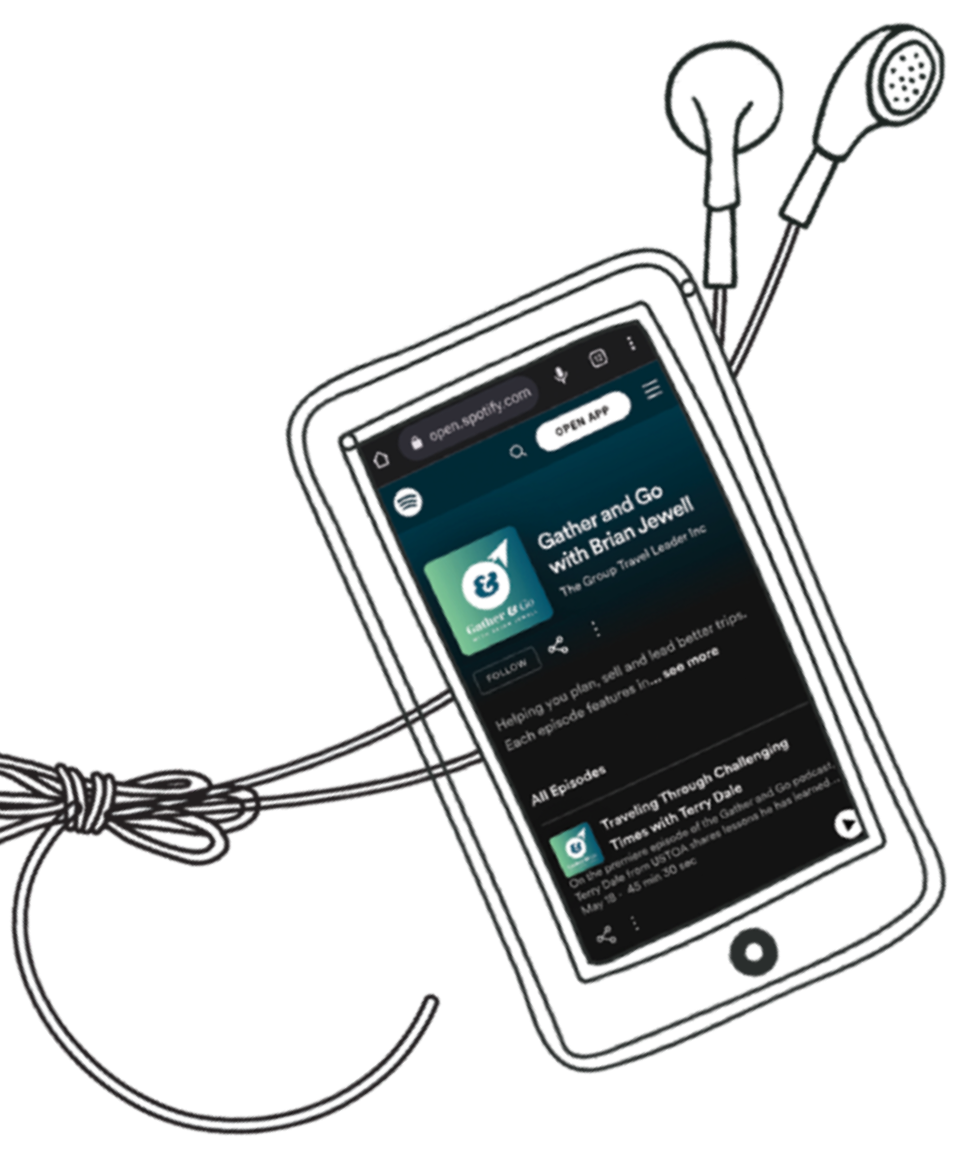Andrae Marable is doing the impossible.
A young tourism entrepreneur, Marable is the founder of The Pack Roadtrip Travel Club, which specializes in group tours for people in their 30s and 40s. On this episode of the podcast, he shares his secrets for building travel experiences that appeal to Generation X and Millennials. He also gives us some tips on creative and affordable marketing techniques, plus things he wishes vendors understood about the tour business.
Plus, we have news about the travel industry’s ongoing recovery; a Road Tip about keeping your groups hydrated; and a Hot Minute about the biggest mistake travel planners make in scheduling their tours.
Podcast: Embed
Resources Mentioned in This Episode
To learn more about The Pack Roadtrip Travel Club, visit thepacktravelclub.com.
Find The Pack on Facebook at @thepacktravelclub or on Instagram at @thepacktravelclub.
To read and subscribe to Select Traveler magazine, visit selecttraveler.com. For advertising information, contact Kyle Anderson at 859-253-0455 or kyle@grouptravelleader.com.
Key Moments From This Episode
1:05 — Travel News: A hotel recovery forecast
3:04 — Road Tip: Hydrating your group
6:02 — A resource for high-end affinity travel groups
8:40 — How Andrae found his travel calling
12:17 — Learning how to charter a motorcoach
14:26 — Reaching Gen X and Millennials
16:16 — Communicating value in expensive times
20:49 — Smart tour marketing ideas
25:12 — Maximizing marketing impact on social media
29:33 — Building trips younger travelers love
43:44 — Hot Minute: Do your travel days start too early?
About the Podcast
Gather and Go with Brian Jewell is a podcast that group travel leaders plan, promote and lead better trips. Listeners includes tour operators, travel agents, affinity group travel planners, destination marketers, museum leaders, church travel leaders and other tourism professionals around the country. Each episode includes a featured conversation with a smart and influential travel leader, as well as travel news, road tips and more. New episodes are released about twice a month.
You can find Gather and Go wherever your listen to podcasts or subscribe by email.
Have questions, comments or ideas for the podcast? Send them to us at podcast@grouptravelleader.com.
Thanks for listening!




